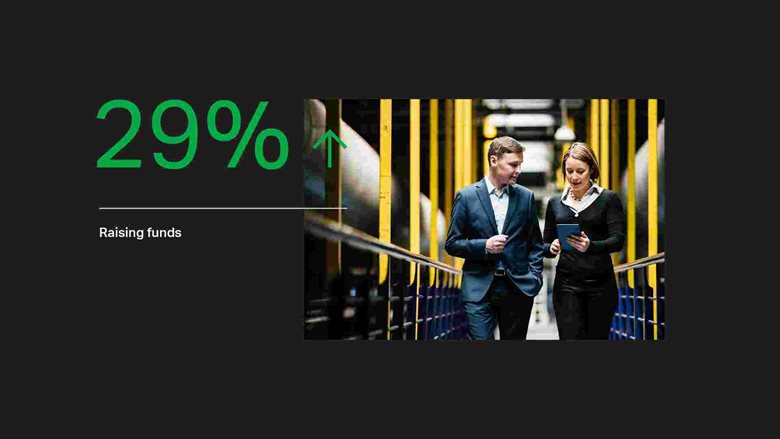29% increase in raising funds shows COVID-driven recapitalization
COVID-19 has no doubt made it difficult for new companies to access funding; however, this hasn’t prevented many companies from securing funds in order to ride out the pandemic.
By AnsaradaWed Sep 23 2020Capital raising, Industry news and trends

Our indicators show an increase of 29% in raising funds, and a 63% increase in debt transactions this past quarter.
Australian fintech companies have led the charge, securing millions in funding as the pandemic has accelerated the need for new, online solutions.
ASIC and the ASX increased placement capacities to 25% of shares on issue (up from 15 per cent) so that listed companies could raise larger amounts of equity to survive disruption, leading to a flurry of equity placements.
According to fintech Fresh Equities, there has been a whopping $8.5billion in equity raising activity during the pandemic. Their data shows there were 205 placements completed over May and June, with 156 companies or 76% now trading at a positive return to the placement price. The biggest returns went to gold and silver exploration companies, followed by the mining sector and technology companies.
“With a lot of these businesses, there is a question around solvency and investors really need to make up their minds about what recovery is going to look like,” she says. “This is the struggle that is going on in markets – liquidity versus solvency,” said Julia Lee, Chief Investment Officer of Burman Invest.
It remains to be seen which stocks can perform past this spike in activity, as many will depend heavily on how long the coronavirus shutdown will last and when restrictions may be lifted. “This is especially the case for those in sectors like travel and hospitality, such as Flight Centre and Webjet, whose emergency status has almost entirely been a result of the pandemic,” said Lee.
Australian fintech companies have led the charge, securing millions in funding as the pandemic has accelerated the need for new, online solutions.
Equity raisings boom amid the pandemic
On 31 March 2020, the Australian Securities and Investments Commission (ASIC) and the Australian Securities Exchange (ASX) announced temporary capital raising relief measures for ASX-listed entities to facilitate emergency capital raisings that would help them weather the decline in earnings.ASIC and the ASX increased placement capacities to 25% of shares on issue (up from 15 per cent) so that listed companies could raise larger amounts of equity to survive disruption, leading to a flurry of equity placements.
According to fintech Fresh Equities, there has been a whopping $8.5billion in equity raising activity during the pandemic. Their data shows there were 205 placements completed over May and June, with 156 companies or 76% now trading at a positive return to the placement price. The biggest returns went to gold and silver exploration companies, followed by the mining sector and technology companies.
A question of solvency
While capital raising continues to flourish, there remains uncertainty around the future of many of these companies. Experts agree there is a divide between raising for survival versus raising to meet long-term growth objectives.“With a lot of these businesses, there is a question around solvency and investors really need to make up their minds about what recovery is going to look like,” she says. “This is the struggle that is going on in markets – liquidity versus solvency,” said Julia Lee, Chief Investment Officer of Burman Invest.
It remains to be seen which stocks can perform past this spike in activity, as many will depend heavily on how long the coronavirus shutdown will last and when restrictions may be lifted. “This is especially the case for those in sectors like travel and hospitality, such as Flight Centre and Webjet, whose emergency status has almost entirely been a result of the pandemic,” said Lee.


